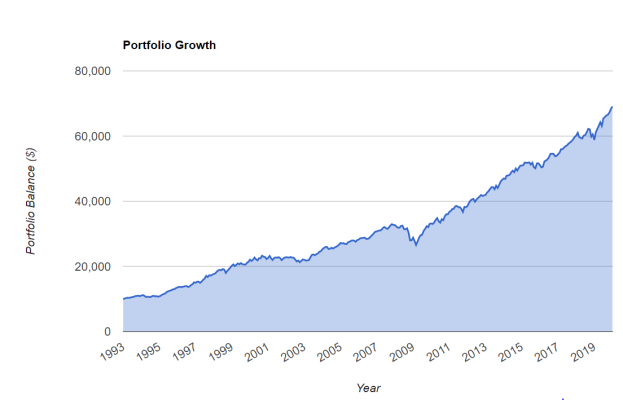I need some advice...
I am very close to FIRE, and it makes sense for me to move my investments to a more conservative model. For good reasons, my funds will need to be in my company 401K account (potential early access at 55 etc.), and I would like to move quite a bit of $ into short term funds. The issue is the Stable fund in my 401K account is bad (basically ~1%/yr return with a 0.5% yearly fee). A conservative Vanguard fun is also available at 0.08% yearly fee (Vanguard retirement 2015). I like this fund because the bond portfolio has the lowest Weighted Avg Maturity 0f 7.43 years and Duration of 5.92 years. I don't want bonds that will move a lot with interest rate hike. Will these duration/maturity good enough for that?
My question is: am I being unrealistic thinking that the above 40/60 stock/bond fund with mid-duration bonds can replace my short term cash account? If there is some level of protection from the above fund, then I would rather take that given that the Stable fund will just give me close to 0% gain for sure.
Thanks for all comments.
I am very close to FIRE, and it makes sense for me to move my investments to a more conservative model. For good reasons, my funds will need to be in my company 401K account (potential early access at 55 etc.), and I would like to move quite a bit of $ into short term funds. The issue is the Stable fund in my 401K account is bad (basically ~1%/yr return with a 0.5% yearly fee). A conservative Vanguard fun is also available at 0.08% yearly fee (Vanguard retirement 2015). I like this fund because the bond portfolio has the lowest Weighted Avg Maturity 0f 7.43 years and Duration of 5.92 years. I don't want bonds that will move a lot with interest rate hike. Will these duration/maturity good enough for that?
My question is: am I being unrealistic thinking that the above 40/60 stock/bond fund with mid-duration bonds can replace my short term cash account? If there is some level of protection from the above fund, then I would rather take that given that the Stable fund will just give me close to 0% gain for sure.
Thanks for all comments.

